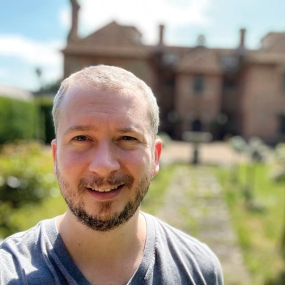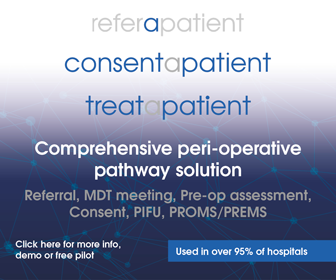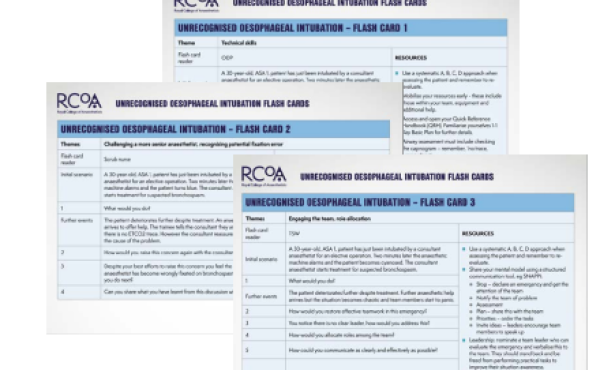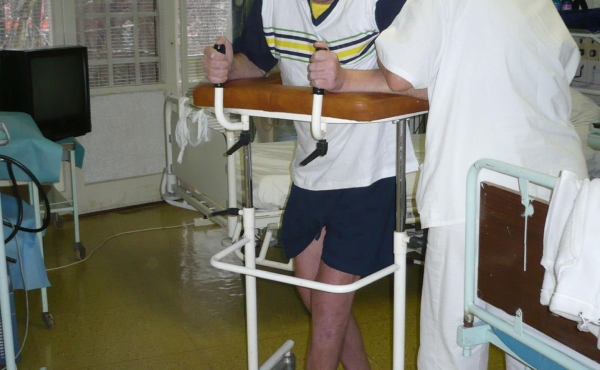
When leaving sixth-form I was given the illustrious award for ‘student with the most clear monosyllabic communication’ by my form-tutor, a man who had seen me every morning for seven years by that point. A man, who in my timidness I had probably spoken to for less time than it takes to read this article.
Flash forwards another 16 years, and I found myself in the position of anaesthetic management trainee at the Royal Berkshire Hospital – no longer the intensely shy teenager I once was, but nonetheless still constrained by self- consciousness and self-doubt.
Having rarely embarked on anything more challenging than organising my sock drawer, the thought of managing the rota and allocations for all trainees in the department was a daunting one. I quickly learnt that I could not keep everything in my head, nor could I please everyone. Sadly, it wasn’t possible to place all of the 30 trainees on the weekly advanced airway list simultaneously.
Paranoia soon set in when overhearing complaints in the trainee room around working with particular consultants. I was surprised and unprepared to hear of the personality clashes between some of the other trainees. I also sensed I was no longer one of the gang, feeling at times perceived as the prisoner with the better rations.
I was later tasked with organising the anonymous consultant feedback. This again, proved difficult – with the trainee body already saturated by endless survey requests, it was tough to drum up enough responses. Later came a couple of anonymised and highly personal comments aimed at a few of the consultants. In discussion with the clinical lead and College tutors, these comments, albeit slightly moderated were fed back. It was humbling to see just how crestfallen those recipients were. I saw the consultant body in a new light – as fallible human beings just as fatigued by the pandemic as we were.
But, despite all these challenges, I began to embrace the position. I learnt to be tactical – how to politely decline requests and offer alternatives. Just before taking on the role, my father had been unexpectedly diagnosed with an inoperable cancer and began an intensive course of radiotherapy. While I had largely kept this to myself, I gained new appreciation of the importance of the pastoral role of a senior trainee and of confiding in others when times are hard. Relationship break-ups, family being abroad, health problems, burn-out, pregnancy and debt were all subjects in which colleagues confided in me in their own struggles. This is where I realised I could in part help – as a link between the department and those seeking support, and by placing them on low-intensity lists or avoiding them working solo during those particularly difficult periods of hardship.
In addition to leading the local Cappuccini audit, I also made progress through tackling long-standing communication issues between the registrars and the labour ward, and through this gained a real insight into the power of influence a management position has in protecting colleagues and patients alike.
The year ended on a high, with a College tutors’ prize for my efforts – a long way from the honour of that earlier form-tutor of my schooldays. Managing groups of people is an unavoidable facet of clinical practice, whether it be as an educational supervisor or as a departmental boss. Moreover, the College has integrated it specifically into the new curriculum. If anything I have written has struck a chord with you, then, I can promise you, you would be ideally suited to this responsibility – even if my socks are currently mismatched!
More from the Digital Bulletin
- Bulletin: October 2022
- Training
Introducing the SAS advocate role
- Bulletin: October 2022
- Editorial
Tackling unrecognised oesophageal intubation
- Bulletin: October 2022
- Editorial
DrEaMing after surgery
Are you enjoying the Digital Bulletin?
It's now very easy to opt-out of the print version and only receive the digital Bulletin. Log in/sign up for My RCoA untick the print option and tick the digital option.





